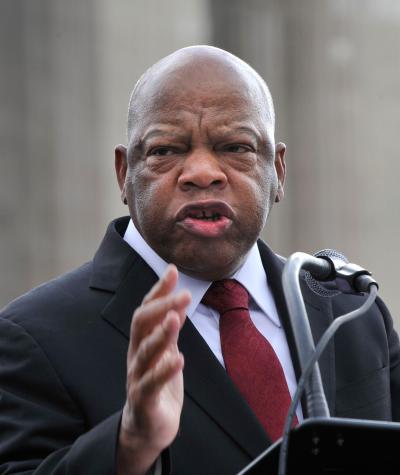U.S. Rep. Terri Sewell introduced the John Lewis Voting Rights Advancement Act, otherwise known as the VRAA or H.R. 4 on Aug. 17, 2021. The Voting Rights Act had a long track record of earning overwhelming bipartisan support.
The House is expected to pass the bill the week of August 23. Then the pressure will be on the Senate to act.
Whatever our color, background or zip code, in America, we value our freedom. Congress passed the Voting Rights Act to protect our freedom to vote and ensure that attempts to create discriminatory barriers to voting were formally reviewed.
But last month, the U.S. Supreme Court took us backward by making it even more difficult for voters to challenge discriminatory voting laws in the future.
The Department of Justice does not currently have the tools it needs to hold states with a history of discrimination in voting accountable for passing discriminatory voting laws. By passing H.R. 4, Congress would strengthen the guardrails and stop attacks on their freedom to vote in their tracks.
In a hearing before the House Committee on the Judiciary on Aug. 16, 2021, witness testimony demonstrated the urgency of congressional action addressing challenges faced by communities of color with access to voting.
According to a recent report released by Campaign Legal Center (CLC), at least four states that passed restrictive laws in the first half of this year would have been subject to preclearance if the John Lewis Voting Rights Advancement Act were in place.
This would have required them to prove to the U.S. Department of Justice or a federal court that their laws did not discriminate against voters of color.
Under the new formula provided by the VRAA, Alabama, California, Florida, Georgia, Louisiana, Mississippi, New York, North Carolina, South Carolina, Texas and Virginia would likely be subject to preclearance.
The Voting Rights Act of 1965 was renewed by Congress five times after hours of hearings proving the persistence of racial discrimination in voting and the law’s unequivocal success at combatting it.
If the end of the twentieth century was a period of voting rights expansion, the twenty first century has been a period of rising attacks on voting rights.
Every time the law has been reauthorized, it has been signed into law by a Republican president after first being signed into law by Democratic President Lyndon Johnson in 1965 during the height of the civil rights movement.
When it was reauthorized most recently in 2006, it passed the Senate with unanimous support: 98-0. It was signed into law by former President George W. Bush following many hours of hearings that demonstrated the persistence of racially targeted policies in our democracy and the continued effectiveness of this law in mitigating them.
Attacks on voting rights have reached a new fever pitch after the U.S. Supreme Court’s decision in the 2013 case Shelby County v. Holder.
In the past decade, Americans have seen cutbacks to early voting periods, new burdensome requirements to cast ballots and restrictions on the right of civic groups to assist citizens in participating fully in the democratic process.
Just as we have fought throughout our history for our freedom to vote, we are coming together now across race and place to ensure Americans are able to freely cast our vote without fear of discrimination.
For democracy to work for all of us, it must include us all. No matter our color, party, or zip code, we all want an equal say in the decisions that shape our future.
